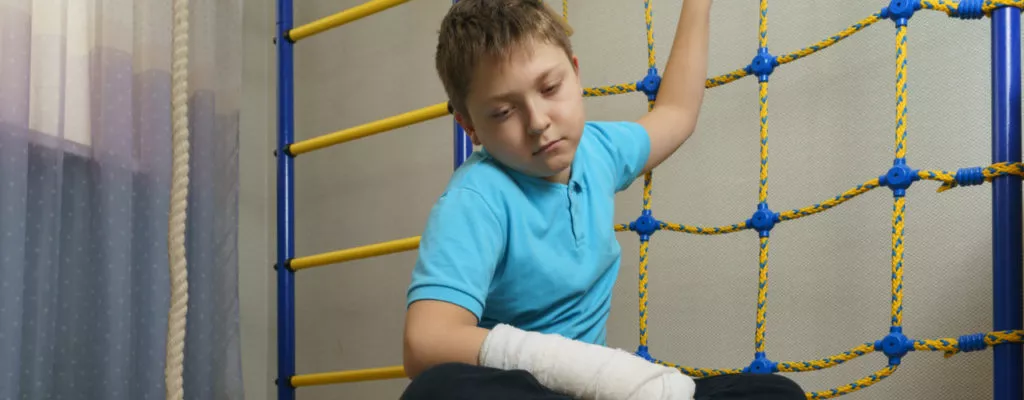Orthopedic Conditions

Pediatric physical therapy plays a crucial role in the management and treatment of orthopedic conditions in children. As specialized healthcare professionals, our pediatric physical therapists possess the skills, knowledge, and expertise to provide targeted interventions that optimize the physical well-being and functional abilities of young patients. This article explores the significance of pediatric physical therapy in addressing orthopedic conditions, highlighting the role of a pediatric physical therapist in delivering comprehensive care.
Orthopedic conditions encompass a wide range of musculoskeletal disorders affecting the bones, joints, muscles, ligaments, and tendons. These conditions can arise due to various factors, including congenital anomalies, traumatic injuries, developmental disorders, and neuromuscular diseases. Examples of orthopedic conditions commonly encountered in pediatric physical therapy include scoliosis, fractures, sprains, strains, sports injuries, cerebral palsy, spina bifida, and muscular dystrophy.
Pediatric physical therapists are equipped with specialized training that enables them to assess, diagnose, and develop individualized treatment plans tailored to the unique needs of each child. They collaborate closely with healthcare teams, including physicians, occupational therapists, and orthopedic surgeons, to ensure comprehensive and coordinated care. By focusing on improving mobility, strength, flexibility, and overall physical function. pediatric physical therapists aim to enhance children’s quality of life and maximize their potential for independent movement and participation in daily activities.
How Pediatric Therapy Helps
The role of a pediatric physical therapist in the management of orthopedic conditions is multifaceted and involves several key aspects:
Evaluation and Assessment:
Pediatric physical therapists conduct thorough evaluations to assess a child’s functional abilities, range of motion, muscle strength, posture, balance, and gait. They utilize standardized assessments and clinical observations to establish a baseline and identify specific impairments or limitations that may be contributing to the orthopedic condition. This comprehensive assessment guides the development of an individualized treatment plan.
Individualized Treatment Planning:
Based on the evaluation results, pediatric physical therapists develop customized treatment plans tailored to address the specific needs of each child. These plans may include therapeutic exercises, manual therapy techniques, stretching, mobility training, balance and coordination activities, and functional training. The goals of the treatment plan are to improve physical function, enhance mobility, prevent further complications, and promote overall well-being.
Therapeutic Interventions:
Pediatric physical therapists employ a variety of therapeutic interventions to address orthopedic conditions in young patients. They utilize evidence-based techniques and modalities to promote healing, restore range of motion, strengthen muscles, improve posture and alignment, and enhance overall physical function. These interventions may include therapeutic exercises, joint mobilizations, soft tissue mobilizations, aquatic therapy, electrical stimulation, heat and cold therapy, and assistive device training.
Education and Family Involvement:
Pediatric physical therapists play a vital role in educating families, caregivers, and patients about the condition, treatment options, and strategies for home management. They provide guidance on exercises, home exercises programs, activity modifications, and injury prevention techniques. By actively involving families in the rehabilitation process, pediatric physical therapists empower them to support their child’s progress and promote long-term functional gains.
Collaboration and Interdisciplinary Care:
Pediatric physical therapists collaborate closely with other healthcare professionals and members of the interdisciplinary team to ensure comprehensive and integrated care. They work hand in hand with physicians, orthopedic surgeons, occupational therapists, and other specialists to develop a cohesive treatment plan that addresses the child’s orthopedic condition from various angles. This collaborative approach enhances the effectiveness of the interventions and promotes optimal outcomes.
Monitoring Progress and Outcomes:
Pediatric physical therapists regularly assess and monitor a child’s progress throughout the treatment process. They track improvements in functional abilities, mobility, and overall physical function. By closely monitoring outcomes, pediatric physical therapists can modify treatment plans as needed and make necessary adjustments to optimize progress and ensure the best possible outcomes for each child.
See The Pediatric Specialists In Batavia & Port Charlotte
Pediatric physical therapy is an essential component of comprehensive care for children with orthopedic conditions. Pediatric physical therapists play a vital role in optimizing the physical well-being, mobility, and functional abilities of young patients. Through individualized treatment plans, therapeutic interventions, family involvement, and interdisciplinary collaboration, pediatric physical therapists strive to maximize each child’s potential for independent movement, improve quality of life, and foster long-term well-being. Their expertise and specialized training make them invaluable members of the healthcare team, ensuring that children with orthopedic conditions receive the optimal care they deserve.
With experienced hands-on therapy, gentle therapeutic exercises, and specialized pediatric therapy care, we help children restore range of motion and get back to normal activities quickly.


